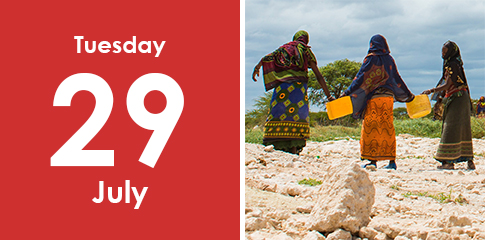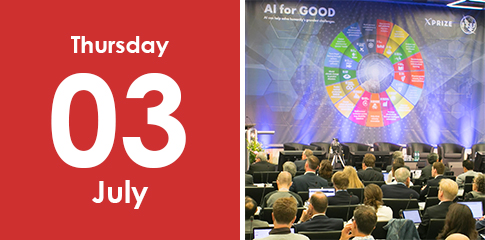Increasing investment into sustainable development projects will require rewriting the rules for pension funds, working with well-informed partners, and performance-related incentives for local government officials, writes Nathan Sussman.
In 2015, the United Nations laid out 17 Sustainable Development Goals (SDGs) – including eliminating extreme poverty, ensuring inclusive and equitable education, and access to affordable and clean energy for all. Halfway through the midway point, it has become clear that the world is well short of the pace needed to meet those goals by 2030.
One huge headwind is financing. While the global impact investment market is expected to swell to a record $495 billion in 2023, the volumes are very small relative to what’s needed. Compare this to the roughly $50 trillion in pension fund assets managed globally. Just half of the management fees that these pension funds charge could double the investment into education and infrastructure in Sub-Saharan Africa.
There are several reasons why pension funds aren’t funnelling more money into sustainable development projects.
First, it comes down to financial regulation. Simply put, in most advanced economies, the fiduciary duty of pension fund managers is to maximise the value of these pensions for investors. Speaking at the 2022 Building Bridges conference in Geneva, Blackrock Vice Chairman Phillip Hildebrand said that, unless instructed otherwise by regulators, “as a fiduciary agent, we approach investments under the criterion of risk.” However, focusing on a narrow definition of maximising current profits and risks might serve the pensioners who are due to retire tomorrow. But by ignoring, for example, long-term climate risks, you could end up diminishing returns for future pensioners.
At the same time, to increase competitiveness and accountability among pension funds, they are required to report their financial returns at least annually. The downside of this reporting requirement is that it incentivises short-termism, with fund managers’ bonuses linked to their performance that year rather than in 20 years’ time.
The second challenge is the claim that there is a lack of investible projects. To convince pension funds to invest, projects need well-defined goals, the right governance and reporting structures, transparency, and ESG requirements. Given the fact that the world’s poorest tend to live in countries that often face governance challenges, many impact investors will cherry-pick certain projects where they see less risk of funds going astray due to corruption. However, this limits the scale. As former Chief Economist of the World Bank Francois Bourguignon and Jean-Philippe Plateau have pointed out, corruption aversion has in the past trumped poverty aversion by some donors.
Third, many of the projects considered to be sustainable by the West won’t be enough to transform the economies of developing nations and eradicate poverty. Too much funding goes into agricultural projects, which are easy to measure. However, if we look at the economies of advanced nations, only a small proportion of GDP comes from agriculture. Instead, more investment should go into education and human capital. Yet, this is hard to measure, and even harder to realise short-term returns from, so investors go after the low-hanging fruit instead.

So, what needs to change to encourage the financing of projects that are focused on systemic change at scale rather than isolated challenges?
1. Regulatory sandboxing
Just as banking regulators have introduced new requirements that ask banks to stress test their portfolios against climate-related financial risks, pension fund regulators could do the same, broadening the fiduciary duty to consider the long-term impact of environmentally related risks in their portfolio.
Regulatory sandboxes are already widely used to design new financial services, such as testing digital wallets and digital ID technologies. By using the same approach for sustainable development investment projects, regulators could provide a testbed for pension funds to experiment with how to turn these projects into investible assets.
In some European countries, such as the Netherlands, pension funds have been able to offer investors the choice of investing in SDGs, with the caveat that this could reduce the returns. Relaxing the reporting requirements for these investments, so that fund managers are not held accountable for short-term returns, would also encourage more funds to get involved in these projects.
2. Give local officials skin in the game
In advanced economies, it is standard practice to offer bonuses or performance-related incentives to fund managers or executives for meeting or exceeding their targets, so why don’t we do the same for government officials who oversee development projects, especially at the local level? There is a risk that this could be construed in some quarters as a bribe, but providing they are properly regulated and measured, such bonuses would provide clear incentives for officials to get things done and to perform well – much as is the case in the business world.
3. Collaborate with on-the-ground actors to identify projects
NGOs working on the ground in many developing countries know that, despite corruption, it’s possible to get stuff done. Given that most pension fund managers can’t go into developing countries to source projects, they should work closely with NGOs and government agencies to help define investible projects. One success story is the partnership between coffee capsule company Nespresso, the global non-profit TechnoServe, the US Agency for International Development, and coffee trader Virunga Coffee/Olam International which worked together to revive the Democratic Republic of Congo’s coffee industry while establishing sustainable farming practices, and improving the incomes and livelihoods of farmers. To scale these projects, investors will have to work with organisations such as the International Committee of the Red Cross (ICRC) that have a long history of operating in difficult environments, such as war zones. Once more successful projects come to fruition, the confidence in the investment community will improve. While there are huge regulatory and ethical obstacles to increasing investment, ringfencing just 2-3% of the pension fund’s investments for these projects could be a huge game-changer.
By Nathan Sussman for I by IMD’s September 2023 Magazine
Full Professor of International Economics at The Geneva Graduate Institute and Director of the Institute’s Centre for Finance and Development.









0 Comments